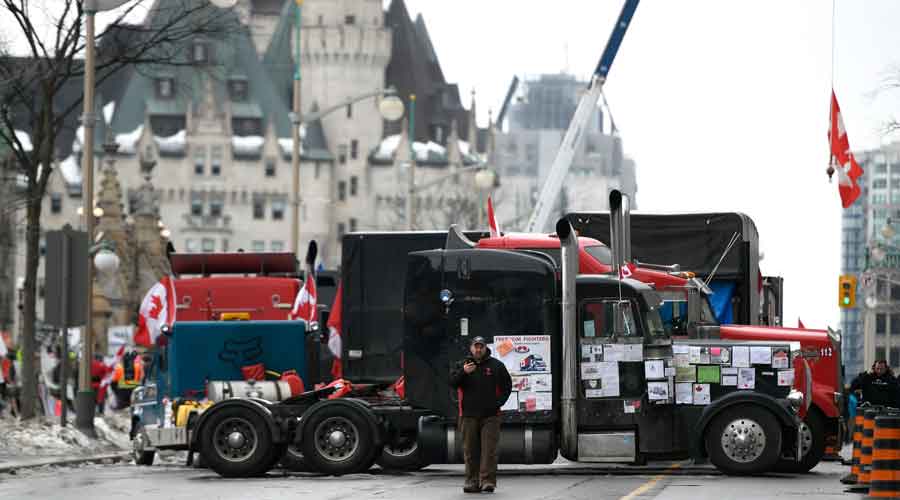Multiple blockades at some of the busiest routes linking Canada to the US are disrupting supply chains of major car companies, leading to production stoppages and fanning alarm that protests in Canada are threatening the country’s economy and trade with the US, its biggest trading partner.
Automakers, who have already been suffering from a global shortage of semiconductors needed to power their cars, are being particularly affected by the partial shutdown of the Ambassador Bridge, which links Detroit, Michigan, with Windsor, Ontario, and accounts for roughly a quarter of the trade between the two countries.
Trucks make thousands of trips across the bridge each day in both directions, carrying $300 million worth of goods, about a third of which are related to the automobile industry, a major employer across the Midwest and Ontario.
The blockades are a spillover from demonstrations in Canada’s capital of Ottawa, which began nearly two weeks ago when loosely organised groups of truck drivers and others converged on the city to protest vaccination requirements for truckers crossing into Canada from the US. In addition to the blockades, the protests have morphed into a battle cry against pandemic restrictions in general and the leadership of Prime Minister Justin Trudeau.
Said Deep, a spokesman at Ford Motor Company, said on Thursday morning that because of the border blockades, the company was currently running its plants in Oakville and Windsor at reduced capacity.
“This interruption on the Detroit-Windsor bridge hurts customers, autoworkers, suppliers, communities and companies on both sides of the border that are already two years into parts shortages resulting from the global semiconductor issue, Covid and more,” Deep said.
“It could have widespread impact on all automakers in the US and Canada.”
Scott Vazin, a spokesman at Toyota, said the shutdown at the border would prevent the company from being able to manufacture anything at its three Canadian plants for the rest of this week. But he said the overall impact on the company’s business would be limited.
GM said it had cancelled two shifts on Wednesday and Thursday at a factory in Lansing, Michigan, that makes sport utility vehicles.
New York Times News Service











